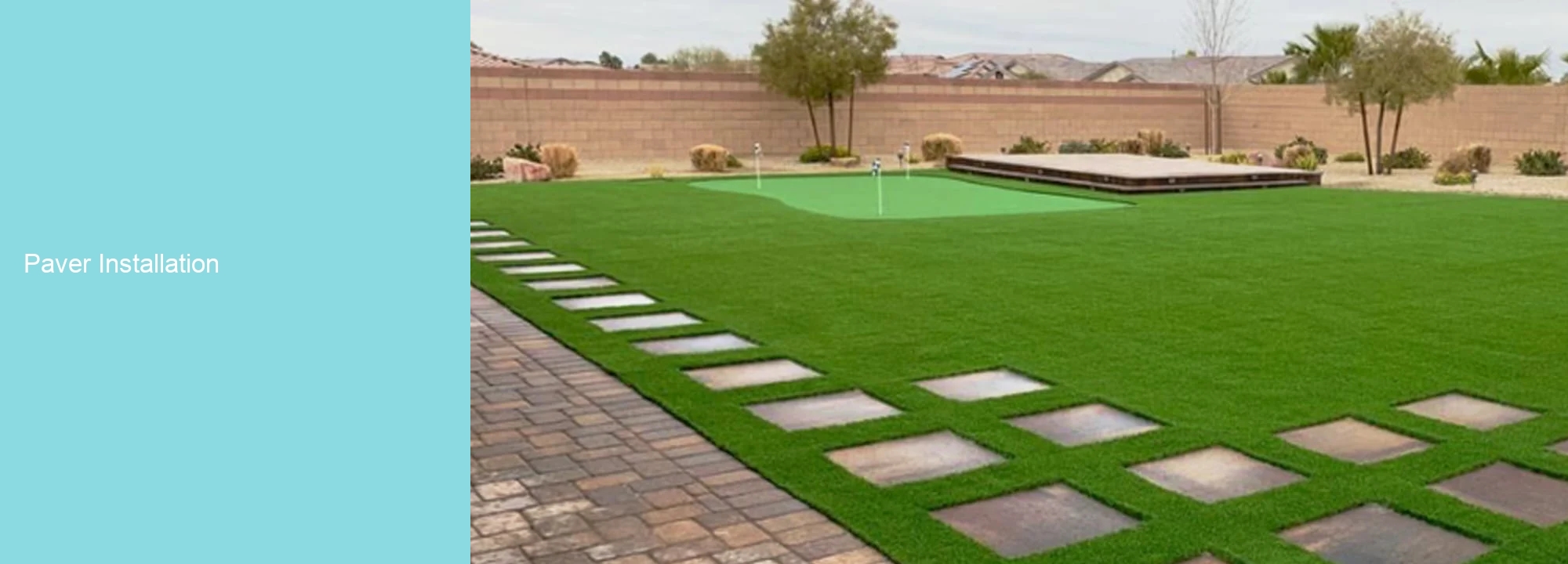

Concrete pavers are a popular choice for many homeowners and builders due to their durability, versatility, and cost-effectiveness. These pavers come in various shapes, sizes, and colors, allowing for a wide range of design possibilities. Concrete pavers are typically used for driveways, patios, walkways, and pool decks due to their strength and resistance to wear and tear.
Brick pavers offer a classic look that can add charm and elegance to any outdoor space. They’re made from clay that has been shaped into form and fired in a kiln for hardness. Brick pavers are commonly used in traditional landscaping designs like pathways or patio areas. Their rich color doesn't fade over time which makes them an excellent choice for long-term installations.
Natural stone pavers exude luxury with their unique patterns and textures. Materials such as granite, marble, slate, limestone among others bring distinct aesthetics to every project. Their use is widespread in high-end residential properties or commercial spaces with emphasis on visual appeal. However, they demand higher maintenance compared to other types of pavers.
Porous or permeable pavers have gained popularity recently due to their environmentally friendly features. These paver systems allow water to seep through the surface into the ground below reducing runoff while recharging groundwater levels simultaneously. They are suitable for applications like parking lots or heavy traffic areas where stormwater management is crucial.
The paver installation process begins with a thorough preparation of the site. This involves the removal of existing structures or surfaces, such as old concrete or plants. The area is then excavated to a suitable depth based on the type and size of pavers being installed. It's essential for this step to be done accurately and thoroughly, as it lays the foundation for all subsequent stages.
Once the site is prepared, a layer of compacted gravel is spread evenly across the base, followed by a layer of sand. These layers provide stability and drainage support for the pavers. The actual laying down of pavers comes next, which can be in any pattern chosen by the homeowner or contractor. After all pavers are securely placed, another thin layer of sand is spread over them to fill in gaps and hold them firmly in place. With these steps diligently followed, you can expect a durable and visually appealing pavement from your paver installation service.
Professional paver installation services offer unmatched quality and durability. These experts understand the best materials for various environmental conditions, ensuring that the installed pavers withstand weather elements for a long time. They also have access to high-quality materials at reasonable prices due to their industry connections. This level of expertise ensures that your pavement will not only look good but also last longer.
Hiring professional paver installers saves you time and effort. The process of installing pavers is labor-intensive and requires specialized skills. Professionals have the necessary experience and equipment to carry out this task efficiently while minimizing disruptions on your property. Additionally, they handle everything from preparation, installation to cleanup, offering you hassle-free service.
Aesthetics is an essential factor in any landscaping project, including pavements. Professional installers possess vast knowledge about design principles such as balance, proportion, color theory among others. They can help you choose the right paver style, layout, pattern, and color that complements your overall landscape design. With a professional touch on your pavements or driveways, your outdoor space will turn into a beautiful paradise that adds value to your property.
When choosing a paver installation service provider, the first factor to consider is their level of experience and expertise. A company with several years of experience under its belt is likely to deliver quality services. They should also have certified professionals who are skilled in various types of paving installations such as interlocking pavers, brick pavers, and concrete pavers.
The reputation of the service provider is another key determinant. Check out customer reviews and testimonials online before making your decision. A company that has consistently good feedback from previous clients can be trusted to do a good job.
Cost is also an important aspect when selecting a paver installation service provider. Different companies offer different pricing structures depending on factors such as material used, layout complexity, or preparation work needed. Choose a service provider whose pricing policy is transparent and offers value for money while not compromising on quality.
Lastly, consider the level of customer service offered by the potential providers. The best companies prioritize their clients' satisfaction and provide excellent pre-and post-installation services. This may include professional advice on maintenance practices or prompt attention to any concerns raised during or after the project completion.
The types of pavers we can install include concrete, brick, stone, and porcelain. The choice depends on your preference and suitability to the landscaping design.
The length of time it takes to install pavers can vary depending on the size and complexity of the project. However, for an average-sized patio or driveway, installation usually takes between 3-5 days.
The process involves several stages including site preparation, base material application, edge restraints installation, sand bedding placement, laying down the actual pavers, cutting if necessary, compacting with a plate compactor and applying jointing sand.